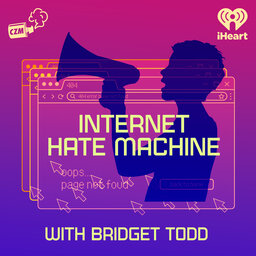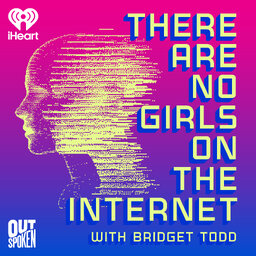What Elon Musk Could Learn from the #EndFathersDay Hoax
We’re joined by Joelle Monique to revisit the 4chan hoax #EndFathersDay and what it says about impersonation as a destabilization tactic on Twitter.
Mikki Kendall's Guardian piece about starting #SolidarityIsforWhiteWomen: https://www.theguardian.com/commentisfree/2013/aug/14/solidarityisforwhitewomen-hashtag-feminism
Internet Hate Machine
Bridget Todd explains how bad actors use the internet to target and silence marginalized people, esp…Social links
Follow podcast
Recent clips

Digital Defiance with B the Way Forward's Brenda Darden Wilkerson
47:05

Internet Hate Machine May Be Over, But The Conversation Continues
39:04

Ifeoma Ozoma: The Woman Who Is Trying to Make Tech Safer, Even If It Costs Her
1:06:18
 Internet Hate Machine
Internet Hate Machine
